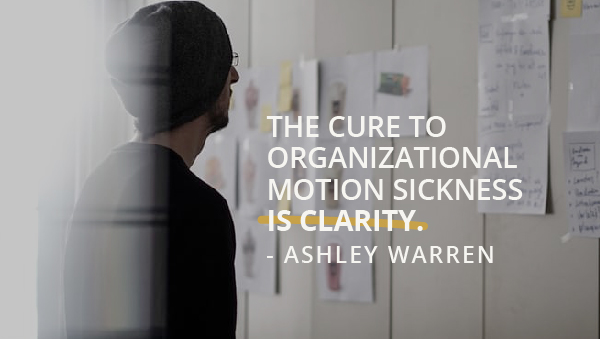Guest Post: Ashley Warren
Meetings and team dynamics. Planning and execution. These are the things that typically occupy my calendar and my attention. It's likely that they're top of mind for you too. But once or twice a year, since I work with an author, speaker, and podcaster who takes her podcast on tour, I get the unique opportunity to jump on a tour bus with her to literally take her show on the road!
I'll never forget my first time on tour with Annie as a headliner. It involved traveling to 8 cities over the course of 2 weeks. Twelve people were living and working and sleeping and eating in a rolling bunkhouse. The first time several of us met was at a rehearsal the day we were boarding the bus! And at each stop, we'd inevitably get the same 2 questions: "Do you actually sleep well on the bus?" (YES!) and "Do you get motion sick?" (Miraculously, no.)
Now, I live in Nashville—Music City, USA—and I can typically hang in conversations that contain terms like “bus call” and “day sheet” and “front of house,” but this was unlike anything I’d ever experienced.
I commented to my friend at one point: “I'm amazed at how quickly this culture has been microwaved.” And because I love to study team dynamics, healthy engagement, and how leaders create a great culture, I couldn't help but note what was so effective in this scenario.
Now, I usually wouldn’t say that you can microwave a healthy team culture. Developing solid culture requires patience, persistence, and a foundation of trust–all things that take time. That’s why I found this experience so fascinating. It was fast-moving and demanding work that could leave your head reeling and your stomach lurching. All the ingredients were there for that terrible feeling of
So in asking the question: “Why does this work so well? How is this team being led, so they don’t end up motion sick?” I came away with two observations that I think will help ANY leader avoid giving your team motion sickness. The cure for organizational motion sickness is clarity.
1. Clarity provides a straight shot at the target.
You get motion sick when you’re going in circles.
Not one of the team members on this tour had any confusion about whether or not the event had been successful each night. The reason for that is the vision was compelling, clear, and repeated regularly enough that no one had a chance to forget it.
See, the guests were attending to be entertained and encouraged, it mattered that the lines moved efficiently, and the production level needed to be top notch, so there were plans in place for all of those aspects of the event to be attended to. But the overarching goal was for under-resourced children around the world to be sponsored. That was the mark of success. That was the metric we measured. It was the goal we kept straight ahead of us. You don’t get motion sick when you can see where you’re going.
Does your team know, specifically, what amounts to success for your organization?
2. Clarity lets you be fast AND flexible.
You get motion sick from speeding up, slowing down and swerving in and out of lanes.
Each person on tour was a specialist in his or her role. Everyone knew the exact lane they needed to run in and the specific contribution they needed to make to achieve the goal of the event.
The tour manager even distributed a list of who does what, so everyone knew not only what THEY were responsible for but they also knew what EVERYONE ELSE was responsible for.
It allowed the team to move fast. You might think that this level of specialization would create a “Stay in Your Lane” culture of silos. That wasn't the case at all. Instead, it allowed them the flexibility to collaborate and offer help when others needed it. You don’t get motion sick when you’re moving forward at a steady rate.
What are you doing to anticipate and eliminate confusion for those you lead?
Clarity is one of the greatest gifts you can give those you lead. It will help you build a culture where your team has a sense of purpose and works efficiently and collaboratively.
So, I’d encourage you to take some time to ask yourself the questions above, to honestly assess where there are points of confusion in your organization and fight to free your team from the dizzying headache of motion sickness by providing clarity.
** Culture Matters **
Free Workbook for An Extraordinary Team Culture
Most leaders agree that a healthy culture is essential in any organization. Everything we do as leaders is either building or eroding culture.
We want to help you develop an extraordinary team culture, so if you haven’t downloaded our free workbook, please access this resource.
This guide will help you define your culture, develop your vision statement, and develop your plan for an extraordinary team culture!


Leave Comment